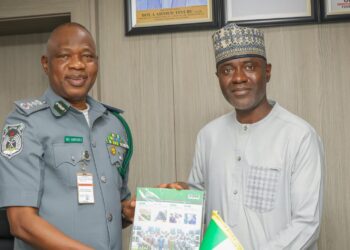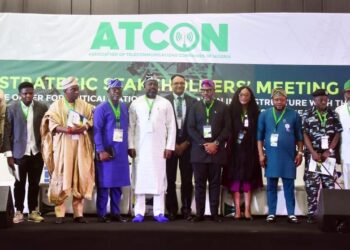The Nigerian Communications Commission (NCC) has introduced a bold new licensing regime designed to support innovation, fast-track emerging technologies, and expand access across Nigeria’s digital ecosystem.
The Executive Vice Chairman of NCC, Dr. Aminu Maida, unveiled the General Authorisation Framework at a stakeholders’ engagement forum held on Thursday.
He described the framework as a dynamic regulatory structure that departs from traditional licensing approaches to accommodate novel services and technologies not yet covered under existing rules.
“This reform introduces a flexible and responsive regulatory licensing approach. It is structured to embrace new and emerging services that fall outside the existing license structure,” Maida said.
Smart regulation
According to Maida, at the heart of the new framework are three key instruments designed to support innovation while managing risk and protecting consumer interests:
- Proof-of-Concept (PoC) Pilots – These will allow innovators to test novel ideas in live environments to validate feasibility and performance before wide-scale deployment.
- Regulatory Sandbox – A controlled environment where innovators ranging from startups to telecom giants can trial experimental solutions such as Open RAN (Open Radio Access Networks) and dynamic spectrum sharing under NCC’s oversight.
- Interim Service Authorisation – For services that don’t yet fit into Nigeria’s existing licensing categories, allowing them to operate provisionally while frameworks evolve.
Maida said this model creates a “platform for innovators of various sizes to demonstrate feasibility, assess risk, and measure outcomes before deployment.” It also aims to strike a balance between encouraging cutting-edge ideas and safeguarding public interest.
While the regulatory shift is significant, Maida stressed that collaboration is crucial to its success. He called on Mobile Network Operators, service providers, infrastructure companies, OEMs, startups, civil society, and academia to actively engage in shaping the framework through feedback, partnerships, and co-creation.
Evolving with technology
Also speaking at the forum, the Director of Licensing and Authorization at the NCC, Mr. Usman Mamman, said the rapid evolution of the global digital ecosystem has directly challenged the subsisting license framework with the Commission as it continues to witness the emergence of new technologies, novel business models, and innovative services, many of which do not fit neatly into its traditional licensing structures.
“Recognizing this shift, the Commission deemed it necessary to critically re-evaluate and retool our regulatory toolkit.
“One of the key outcomes of this review is the development of the draft General Authorisation Framework (GAF), a flexible, forward-looking approach to licensing that promotes innovation while ensuring regulatory oversight, consumer protection, and market integrity,” he said.
- According to Mamman, the drafting of the General Authorisation Framework was the outcome of extensive research, cross-departmental collaboration, and critical evaluation of both global best practices and local industry dynamics.
- He said the Commission carried out an internal review of recent service applications, inquiries, and pilot proposals that are not covered in the scope of current licence categories and found a growing need for a flexible and well-structured pathway to test new and emerging ideas.
- He emphasized that the new framework aligns with national digital economy policies, such as the Nigeria Data Protection Act 2023, the National Broadband Plan, and the wider goals of the Nigerian Communications Act (NCA) 2003.























